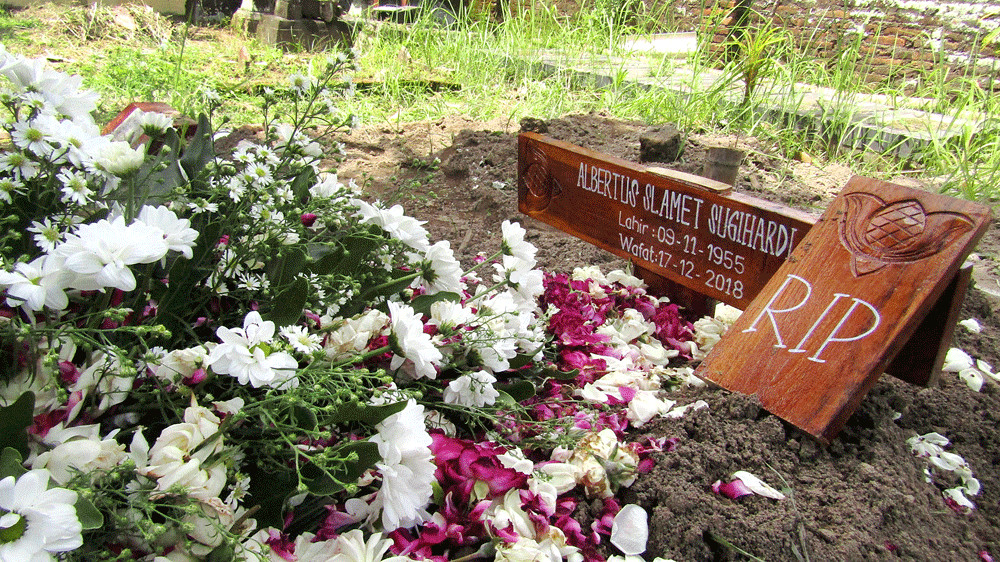Popular Reads
Top Results
Can't find what you're looking for?
View all search resultsPopular Reads
Top Results
Can't find what you're looking for?
View all search resultsRequiem for pluralism
Many tend to confuse democracy with majoritarianism as in the Purbayan case. Democracy only works if every individual has equal rights.
Change text size
Gift Premium Articles
to Anyone
I
n recent years, we have seen many cases of intolerance in the country. The list is so long that it has now become a cliché to lament the fact that the very idea of Indonesia as a nation that embraces cultural and religious diversity is a thing of the past, and that another incident of intolerance will no longer shock us.
That notion was proven wrong on Tuesday when it was reported that residents of Purbayan, a subdistrict in Kotagede, Yogyakarta, had cut off the top of the cross-shaped gravestone of a Catholic man simply because the local community had reached a “consensus” that there should be no Christian symbols in their cemetery.
The incident has sparked outrage among many, who have, once again, been forced to ask themselves the question of how far Indonesia has swung to the right of the ideological spectrum two decades after Soeharto’s downfall.
What happened in Purbayan, part of the culture-rich city of Yogyakarta, was in many ways appalling and unprecedented. It was, to put it bluntly, a case of one group of believers denying the rights of a deceased person and his grieving family simply because they do not share the same belief.
What lies beneath the disheartening incident, however, is the same old problem the country has been facing in recent years: The rise of majoritarianism.
Imagine Purbayan as a miniature Indonesia. Among some 300 families living there, only three are Christian, including the family of Albertus Slamet Sugihardi, the Catholic man who died on Monday. As a longtime resident, his wife, Maria Sutris Winarni, wanted her deceased husband to be buried near their home in the Jambon cemetery.
Bejo Mulyono, a local figure, argued that since the cemetery would be used exclusively for Muslims in the future, Slamet should not have been buried there and the fact that the cemetery was open to him was evidence of the community’s tolerance. Moreover, he claimed that Slamet’s family had accepted the rule. He even showed a written statement from Winarni stating that she would not make an issue of the matter.
Some Muslims do believe that graveyards should be separated, but many in the country are open to all faiths. If anything, as a Purbayan resident, Slamet should have the same rights as his Muslim neighbors.
Bejo’s argument is a typical example of majoritarianism. It is only fair from the standpoint of the majority who believe that they have the right to make decisions for the minority. It is unsurprising that when questioned if their decision was fair to the minority, they claimed that the minority willingly accepted their decision.
From the minority’s standpoint, what happened in Yogyakarta, dubbed a symbol of tolerance, is simply another example of the majority imposing their rules on them.
Many tend to confuse democracy with majoritarianism as in the Purbayan case. Democracy only works if every individual has equal rights. The failure to understand the difference will only lead to tyranny or mob rule. When that happens, democracy dies along with our pluralism.










